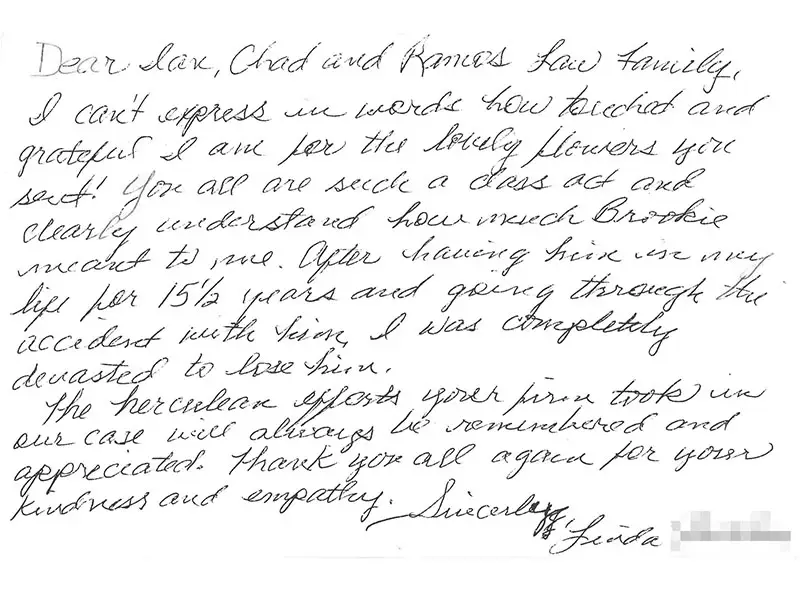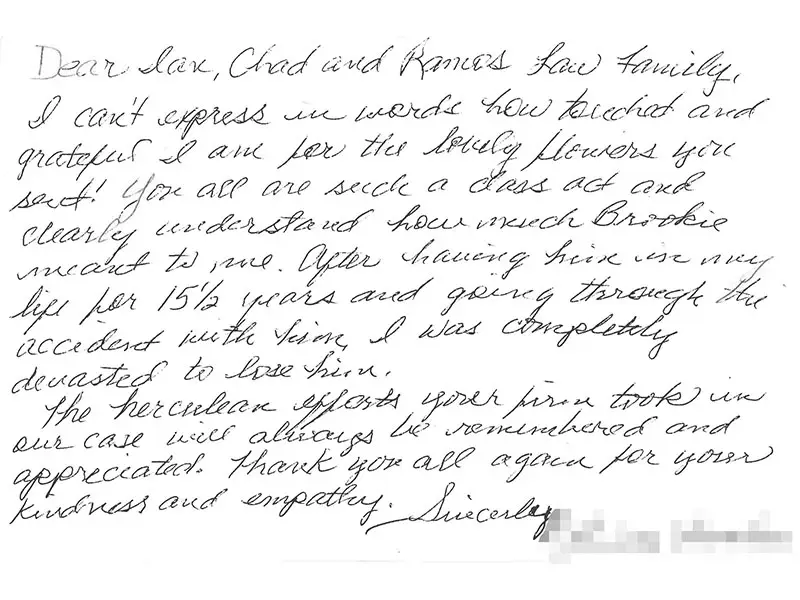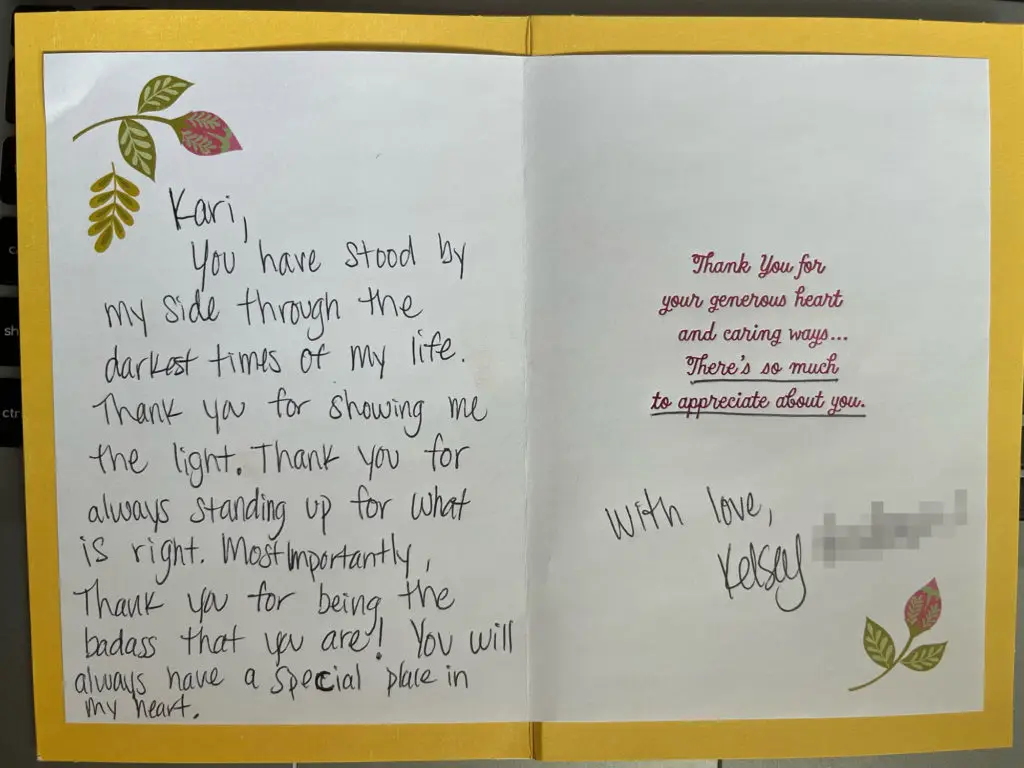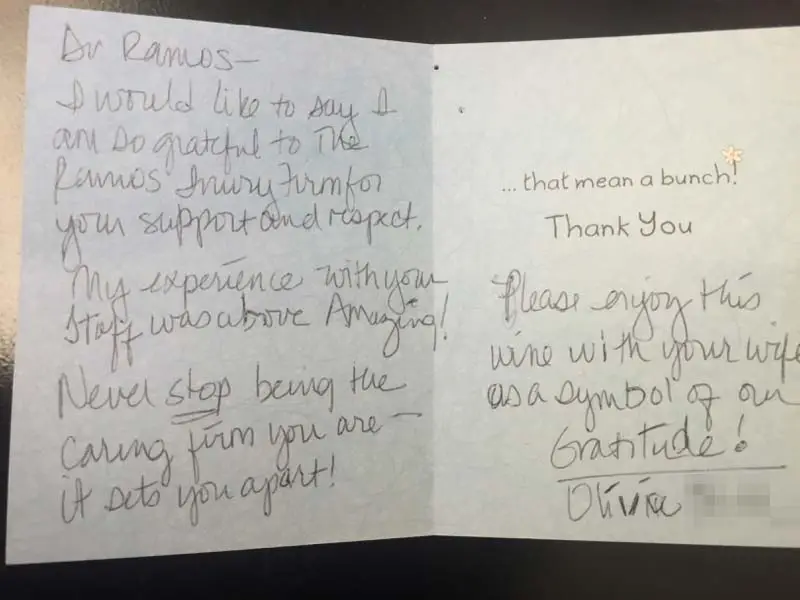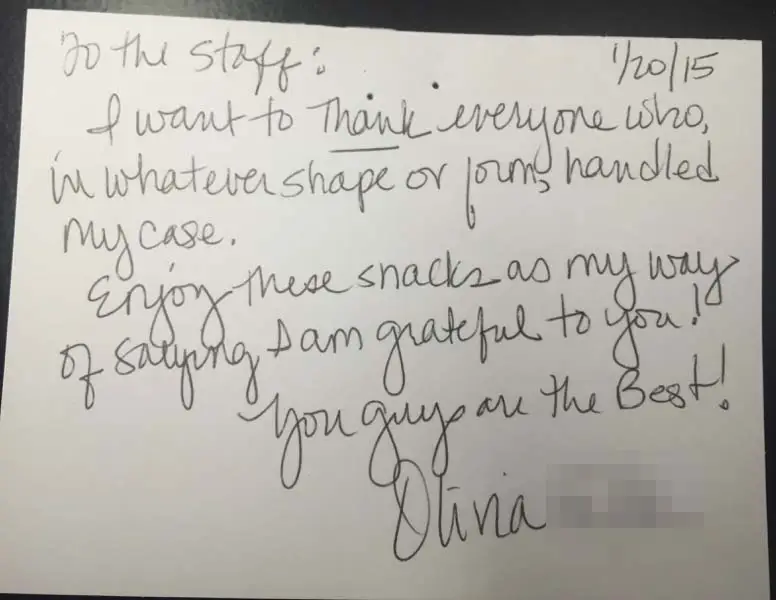Denver Bus Accident Attorneys
Talk With Us TodayDenver
(303) 214-7927Address: 1512 Larimer St Ste 600, Denver, CO 80202. Call Any Time – 24/7
Best Denver Bus Accident Lawyers
Buses are supposed to be a safe way to travel, but when something goes wrong, the consequences can be devastating. A single moment can leave you with serious injuries, mounting medical bills, and a frustrating fight against insurance companies that want to pay you as little as possible.
At Ramos Law, we believe you deserve better. We know that behind every case is a real person whose life has been upended, and we take that personally. We dig deep to uncover the cause of the crash, hold the right people accountable, and fight for the compensation you need to move forward.
Time is limited to file a claim – don’t hesitate to contact our experienced Denver personal injury lawyers for the legal support and representation you need.
We also help victims of the following:
Tell Us About Your Case
A Different Kind of Law Firm Doctor + Personal Injury Lawyer
We do things differently here at Ramos Law. Founded by Dr. Joseph Ramos, an attorney, and a former emergency room doctor, our firm offers something most others can’t: a deep understanding of both the legal and medical side of bus accident cases.
We don’t just see a claim—we see the real people behind the injuries, the long road to recovery, and the financial stress that follows a serious accident. You aren’t just a case number to us. You’re an individual who has suffered greatly, and it’s our goal to help you recover the compensation you deserve to move forward.
What Sets Ramos Law Apart?
- A Doctor’s Perspective on Your Injuries: Dr. Ramos’s medical background means we fully understand how serious injuries affect your life—not just now, but in the years ahead.
- Thorough Investigations: We dig deep, gather evidence, consult accident reconstruction experts, and prove exactly what went wrong.
- A Legal Strategy Built for You: Every case is different. We build a tailored plan to get you the best possible outcome.
- Fighting for Full and Fair Compensation: We don’t settle for less. We push for every dollar you deserve, covering medical care, lost wages, pain, suffering, and future costs.
At Ramos Law, we take every case personally. Our Denver bus accident lawyers are committed to helping each client receive the fair compensation they need.
Trial Lawyer Spotlight: $19 Million Win
Knowing what to do after a bus accident can feel overwhelming. Our video resources offer straightforward, no-nonsense guidance to help you understand your rights, navigate the legal process, and avoid common mistakes.
Tell Us About Your Case
What Our Clients Say
Choosing the right legal team can make all the difference after an accident. Our clients share their experiences of how Ramos Law stood by their side, fought for their rights, and helped them move forward with confidence and peace of mind.
Table of Contents Personal Injury
- Immediate Steps After a Bus Accident in Denver, CO
- Do I Need an Attorney After a Bus Accident in Denver, CO?
- The Statistics Behind Colorado Bus Accidents
- Common Causes of Bus Accidents
- Common Injuries in Denver Bus Accidents
- How Long Can Bus Accident Settlements Take?
- Factors Affecting a Bus Accident Case Outcome
- Proven Results Across Injury Cases
- Standing by Accident Victims in Denver and Beyond
- Related Readings
- FAQs
Immediate Steps After a Bus Accident in Denver, CO
Bus accidents can cause severe injuries and involve multiple parties, making the claims process complicated. The steps you take immediately following a bus accident can significantly affect your ability to secure compensation.
Here’s what you should do:
Submit an Accident Report
Call 911 immediately and ensure law enforcement responds to the scene. Under Colorado Revised Statutes §42-4-1606, it’s mandatory to report any motor vehicle accident involving injury, death, or significant property damage. Failure to report the accident could result in legal consequences.
A police report is not only legally required but also crucial evidence in your case. The responding officer will document:
- The accident location and time.
- Details about the bus and other vehicles involved.
- Witness statements.
- Traffic violations or other contributing factors.
Determining liability can be complex in bus accident cases, as multiple parties may share responsibility, including the bus driver, the bus company, or another motorist. The police report serves as an objective record to help establish negligence and support your claim for compensation.
Gather Evidence
If you’re not in immediate danger and are physically able, collecting evidence at the accident scene is essential. This evidence can significantly strengthen your case. Perform the following:
- Take Photos: Capture images of the accident scene, including the bus, other vehicles, visible injuries, road conditions, and any contributing factors, such as traffic signs or weather.
- Collect Contact Information: Gather names, phone numbers, and insurance details from the bus driver, other drivers involved, and any witnesses. Be sure to note the bus company’s name and vehicle number.
- Document Conditions: Record details such as traffic flow, weather conditions, and any hazardous road conditions, such as construction zones or icy patches, that may have contributed to the accident.
Bus accidents in Denver often involve factors like driver negligence, improper training, or equipment failure. Additional complexities arise in cases involving public transit or school buses, such as government liability or state safety regulations.
Seek Medical Attention
Even if you feel fine after the accident, seek medical attention immediately. Bus accidents often result in injuries that aren’t immediately apparent, such as:
- Whiplash or other soft tissue injuries.
- Internal bleeding or organ damage.
- Concussions or traumatic brain injuries.
- Spinal cord injuries.
Prompt medical care is vital for two reasons:
- Protect Your Health: Early diagnosis and treatment can prevent minor injuries from worsening and address severe conditions that may not show symptoms right away.
- Build Your Case: Medical records serve as vital evidence to establish a clear link between the bus accident and your injuries, which is critical for pursuing compensation.
Document all medical expenses, diagnoses, and treatments. Journaling your recovery process, including physical pain and emotional distress, can further support your claim.
Find a Denver Bus Accident Lawyer
Bus accident cases are often more complicated than standard vehicle accidents due to the number of potential parties involved and the complexity of laws governing buses. You may find yourself dealing with not only the bus company’s insurance but also your own, as well as potential government entities, if public transportation is involved.
At Ramos Law, we’re adept at handling the unique challenges of bus accident cases in Denver. Here’s how we can help:
- Navigate Complex Liability: We investigate all potential parties at fault, including bus drivers, companies, and even government entities, to hold the responsible parties accountable.
- Handle Insurance Negotiations: Insurance companies often try to minimize payouts or shift blame. We’ll protect your rights and ensure fair compensation.
- Prevent Costly Mistakes: Never sign or agree to anything without consulting an attorney, as this can weaken your case. We handle all communications with insurance adjusters to safeguard your claim.
- A Focus on Maximizing Compensation: We fight to recover damages for medical bills, lost wages, emotional distress, and more.
Fighting for Bus Accident Victims
We know you have many options when choosing the right bus accident attorney. But we’re different. Here’s why:
- Expertise in Bus Accident Cases: With nearly 25 years of experience, our attorneys understand the unique challenges of bus accident claims.
- Medical-Legal Expertise: Led by Dr. Joseph Ramos, who is both an attorney and an emergency room physician, our team has the medical and legal knowledge to build a strong case for you.
- No Upfront Costs: We work on a contingency fee basis, meaning you pay nothing unless we win your case.
- Free Consultation: Contact us today for a free initial consultation to discuss your options.
Bus accidents can leave victims with devastating injuries and significant financial burdens. At Ramos Law, we’re here to help you recover the compensation you deserve. Call us today at (303) 214-7927 to schedule your free consultation and take the first step toward justice.
Do I Need an Attorney After a Bus Accident in Denver, CO?
Yes, you absolutely need an attorney following a bus accident. These claims are often more complex than typical vehicle accident cases, involving multiple parties, intricate liability issues, and unique regulations governing bus operations. Without skilled legal representation, navigating these complexities and securing fair compensation can be incredibly challenging.
At Ramos Law, we understand your challenges and have the expertise to build a strong case, protect your rights, and pursue the compensation you deserve.
Colorado’s Statute of Limitations
In Colorado, the statute of limitations for personal injury claims is two years from the date of the injury (Colorado Revised Statutes §13-80-102). As a result, you must file your claim within two years to remain eligible for compensation. For wrongful death claims, the timeline generally begins on the date of death rather than the accident.
Here’s why acting quickly is vital:
- Preservation of Evidence: Over time, crucial evidence such as witness statements, accident scene details, and vehicle conditions may be lost or forgotten. Acting promptly ensures that your Denver bus accident attorney can gather and preserve this evidence to strengthen your case.
- Insurance Deadlines: Insurance companies often have strict internal deadlines for filing claims, and delays could complicate or weaken your case.
- Legal Preparation: Bus accidents often involve multiple liable parties. Building a strong case takes time, making early action essential.
If your accident occurred within the last two years, you may still be entitled to compensation for medical expenses, lost wages, pain and suffering, and more. However, waiting too long to act could jeopardize your ability to recover any compensation.
Don’t wait – contact Ramos Law today to discuss your case.
Why Legal Representation Is Essential
Bus accident claims are inherently more complicated than standard personal injury cases due to several factors:
Multiple Liable Parties
Bus accidents typically involve various parties who may share responsibility:
- The bus driver.
- The bus company or public transit agency.
- Other motorists.
- Manufacturers of defective bus parts or equipment.
Determining liability requires a thorough investigation, which skilled attorneys can handle effectively.
Severe Injuries and Financial Impact
Bus accidents can cause devastating injuries, including spinal cord injuries, traumatic brain injuries, and fractures. Victims often face significant medical bills, lost wages, and long-term rehabilitation costs. An experienced lawyer will ensure that these damages are fully accounted for in your claim.
Complex Regulations
Buses, particularly public transit and school buses, are subject to specific federal and state safety regulations. Understanding and applying these laws to your case is critical for establishing negligence. For example, drivers operating buses under the influence of alcohol (BAC of 0.04% or higher) violate both Colorado law and federal safety standards.This is enforced under both Federal Motor Carrier Safety Regulations (49 CFR § 382.201) and Colorado Revised Statutes § 42-4-1301.
Insurance Company Tactics
Insurance companies frequently attempt to minimize payouts or deny liability altogether. They often argue that victims share some responsibility for the accident or give lowball settlement offers that don’t reflect the true extent of damages. A skilled bus accident attorney can counter these tactics and fight for maximum compensation.
How Ramos Law Can Help You
At Ramos Law, we specialize in handling bus accident cases and have the legal and medical expertise required for favorable outcomes. Our team will:
- Investigate Thoroughly: We’ll gather evidence, interview witnesses, and consult with accident reconstruction experts to determine fault and liability.
- Handle Negotiations: We deal directly with insurance companies to protect your rights and recover fair compensation.
- Pursue Full Compensation: We will account for all damages, including medical expenses, lost income, pain and suffering, and future financial needs.
- Navigate Legal Procedures: Our team will file all necessary paperwork accurately and on time while ensuring compliance with Colorado’s laws and regulations.
You don’t have to navigate the legal process alone. Get in touch with our bus accident attorneys in Denver today.
The Statistics Behind Colorado Bus Accidents
Colorado is no stranger to buses as a means of transportation. In fact, Denver’s RTD, or Regional Transportation District, has over 170 buses in its fleet. The urban atmosphere, busy highway systems, and crowded downtown mean more buses, cars, motorcycles, and bicycles – and an increased risk of collisions.
- Colorado saw 196 bus accidents in 2024. Of this total, 35% resulted in injuries.
- The first quarter of 2024 (January – March) had the most bus accidents (60), where snowy and icy roadways likely contributed.
- Most of the crashes occurred during the evening rush hour, between 3:00 PM and 5:59 PM (47).
- The morning rush hour saw the second-most crashes, between 6:00 AM and 8:59 AM (44).
These notable statistics demonstrate the role that traffic congestion and weather conditions play in bus accidents across Colorado. Understanding when and where these accidents are most likely to occur can help you stay more vigilant and prioritize safety on the road. Should you or a loved one be a victim of a Colorado bus accident, Ramos Law is here to help.
Common Causes of Bus Accidents
Buses play a vital role in transportation, but they are not immune to accidents. The causes often involve multiple factors, some unique to the size and function of buses.
Below are the most frequent causes of bus accidents, along with factors specific to Denver and Colorado.
Driver Negligence
One of the leading causes of bus crashes is driver negligence, which can include:
- Distracted Driving: Whether texting, eating, or interacting with passengers, bus drivers who lose focus can cause devastating accidents. With Denver’s busy streets, such as Colfax Avenue or Broadway, any distraction can quickly lead to a collision.
- Driver Fatigue: Bus drivers often work long hours, and fatigue can impair reaction times and decision-making. This is particularly relevant for long-distance routes and school bus drivers operating on tight schedules.
- Inexperience or Inadequate Training: Driving a bus requires specialized skills. Inexperienced or poorly trained drivers may struggle with maneuvering buses in tight urban areas like downtown Denver or hazardous weather conditions typical of Colorado.
Poor Vehicle Maintenance
Buses require regular maintenance to ensure their safe operation. Mechanical failures such as brake malfunctions, tire blowouts, or engine issues can lead to accidents.
- Regulatory Oversight: Federal and state regulations mandate routine inspections, but lapses in maintenance by bus companies or public transit agencies can lead to preventable accidents.
- Winter Risks: Colorado’s harsh winters and subsequent icy roads increase the need for proper tire and brake maintenance, especially in areas like the foothills or along I-70.
Road Conditions and Environmental Factors
Poor road conditions and weather are common contributors to bus accidents in Colorado.
- Icy or Snowy Roads: Denver’s winters bring challenging driving conditions, with black ice and snow increasing the risk of skidding or losing control, especially for large vehicles like buses.
- Road Construction: Colorado’s expanding infrastructure often leads to construction zones with narrow lanes and reduced visibility, increasing the likelihood of accidents. Interstates like I-25 and I-70 frequently see such issues.
- Rural Roads: While urban areas like Denver pose congestion-related risks, rural regions of Colorado can be equally dangerous due to poorly maintained roads and higher speed limits.
Other Motorists
The behavior of other drivers can significantly contribute to bus accidents.
- Reckless Driving: Speeding, sudden lane changes, or tailgating by other motorists can force bus drivers to react suddenly, increasing the risk of crashes.
- Failure to Yield: Cars that fail to yield the right of way to buses, particularly when merging or making turns, are common contributors to collisions.
Alcohol-Impaired Driving
Driving under the influence of alcohol or drugs is a leading cause of all motor vehicle accidents, including those involving buses. Impaired drivers, whether operating the bus or another vehicle, pose a significant risk to everyone on the road. Denver’s active nightlife and bar scene can also contribute to higher risks during evening and weekend hours.
Pedestrian and Cyclist Incidents
In dense urban areas like downtown Denver, buses frequently share the road with pedestrians and cyclists.
- Pedestrians Crossing Streets: Accidents can occur when pedestrians cross busy intersections without adequate signals or visibility.
- Cyclist Collisions: Buses and cyclists frequently share narrow lanes, and poor visibility or driver inattention can lead to collisions, especially in high-traffic areas like Capitol Hill or LoDo.
By understanding these common causes, bus operators, passengers, and other road users can take steps to reduce risks and improve safety. If you or a loved one has been involved in a bus accident, seeking legal guidance from an experienced lawyer is crucial to determining the cause, identifying liable parties, and securing the compensation you deserve. Contact Ramos Law today.
Common Injuries in Denver Bus Accidents
Buses play a vital role in transportation, but they are not immune to accidents. The causes often involve multiple factors, some unique to the size and function of buses.
Below are the most frequent causes of bus accidents, along with factors specific to Denver and Colorado.
Driver Negligence
One of the leading causes of bus crashes is driver negligence, which can include:
- Distracted Driving: Whether texting, eating, or interacting with passengers, bus drivers who lose focus can cause devastating accidents. With Denver’s busy streets, such as Colfax Avenue or Broadway, any distraction can quickly lead to a collision.
- Driver Fatigue: Bus drivers often work long hours, and fatigue can impair reaction times and decision-making. This is particularly relevant for long-distance routes and school bus drivers operating on tight schedules.
- Inexperience or Inadequate Training: Driving a bus requires specialized skills. Inexperienced or poorly trained drivers may struggle with maneuvering buses in tight urban areas like downtown Denver or hazardous weather conditions typical of Colorado.
Poor Vehicle Maintenance
Buses require regular maintenance to ensure their safe operation. Mechanical failures such as brake malfunctions, tire blowouts, or engine issues can lead to accidents.
- Regulatory Oversight: Federal and state regulations mandate routine inspections, but lapses in maintenance by bus companies or public transit agencies can lead to preventable accidents.
- Winter Risks: Colorado’s harsh winters and subsequent icy roads increase the need for proper tire and brake maintenance, especially in areas like the foothills or along I-70.
Road Conditions and Environmental Factors
Poor road conditions and weather are common contributors to bus accidents in Colorado.
- Icy or Snowy Roads: Denver’s winters bring challenging driving conditions, with black ice and snow increasing the risk of skidding or losing control, especially for large vehicles like buses.
- Road Construction: Colorado’s expanding infrastructure often leads to construction zones with narrow lanes and reduced visibility, increasing the likelihood of accidents. Interstates like I-25 and I-70 frequently see such issues.
- Rural Roads: While urban areas like Denver pose congestion-related risks, rural regions of Colorado can be equally dangerous due to poorly maintained roads and higher speed limits.
Other Motorists
The behavior of other drivers can significantly contribute to bus accidents.
- Reckless Driving: Speeding, sudden lane changes, or tailgating by other motorists can force bus drivers to react suddenly, increasing the risk of crashes.
- Failure to Yield: Cars that fail to yield the right of way to buses, particularly when merging or making turns, are common contributors to collisions.
Alcohol-Impaired Driving
Driving under the influence of alcohol or drugs is a leading cause of all motor vehicle accidents, including those involving buses. Impaired drivers, whether operating the bus or another vehicle, pose a significant risk to everyone on the road. Denver’s active nightlife and bar scene can also contribute to higher risks during evening and weekend hours.
Pedestrian and Cyclist Incidents
In dense urban areas like downtown Denver, buses frequently share the road with pedestrians and cyclists.
- Pedestrians Crossing Streets: Accidents can occur when pedestrians cross busy intersections without adequate signals or visibility.
- Cyclist Collisions: Buses and cyclists frequently share narrow lanes, and poor visibility or driver inattention can lead to collisions, especially in high-traffic areas like Capitol Hill or LoDo.
By understanding these common causes, bus operators, passengers, and other road users can take steps to reduce risks and improve safety. If you or a loved one has been involved in a bus accident, seeking legal guidance from an experienced lawyer is crucial to determining the cause, identifying liable parties, and securing the compensation you deserve. Contact Ramos Law today.
Common Injuries in Denver Bus Accidents
Bus accidents in Denver often result in significant injuries due to the size and weight of buses, as well as the number of people typically involved. Passengers, pedestrians, cyclists, and occupants of other vehicles face unique risks when involved in a bus crash. Below are the most common bus accident-related injuries, categorized to reflect their specific causes and impacts.
Injuries from Sudden Stops or Collisions
Passengers on buses often ride without seat belts, making them vulnerable to being thrown forward during sudden stops or collisions. These injuries can include:
- Head Trauma: Striking the head on seats, windows, or poles can lead to concussions or traumatic brain injuries (TBIs).
- Spinal Injuries: Sudden force can compress the spine, resulting in herniated discs or even paralysis.
- Soft Tissue Injuries: Whiplash and other soft tissue injuries are common due to the rapid motion caused by a crash.
Pedestrian and Cyclist Injuries from Bus Impacts
Pedestrians and cyclists involved in bus accidents often face life-altering injuries from the size and weight of the vehicle. Common injuries include:
- Crushing Injuries: The force of a bus can cause crush injuries to limbs, leading to fractures or amputations.
- Internal Organ Damage: Pedestrians hit by a bus often experience blunt force trauma, which can cause internal bleeding or organ rupture.
- Severe Lacerations: Contact with the bus or the road can cause deep cuts, leading to significant blood loss or infection.
Injuries from Ejection During a Collision
In severe bus crashes, passengers may be ejected through windows or doors from the lack of restraints. Injuries related to ejection include:
- Traumatic Brain Injuries (TBIs): Being thrown from a bus can result in devastating head trauma.
- Spinal Cord Injuries: Landing on hard surfaces can fracture vertebrae or sever the spinal cord.
- Fatal Injuries: Ejection-related accidents are more likely to result in fatalities than other types of bus injuries.
Injuries Caused by Fires or Mechanical Failures
Mechanical failures, such as engine fires or brake malfunctions, can lead to additional injuries in a bus accident.
- Burns: Passengers may suffer from second or third-degree burns if a fire breaks out.
- Smoke Inhalation: Exposure to toxic fumes can result in respiratory damage or long-term lung issues.
- Trauma from Mechanical Failure: Brake or steering failures can cause buses to crash, leading to significant injuries for passengers and others involved.
Emotional and Psychological Trauma from Bus Accidents
Bus accidents are traumatic events, particularly for children or individuals with severe injuries. Common emotional and psychological effects may include:
- Post-Traumatic Stress Disorder (PTSD): Victims may relive the accident through flashbacks or nightmares.
- Anxiety and Depression: Fear of riding buses or traveling in general is common after a traumatic accident.
- Emotional Distress: Victims might struggle with the emotional toll of recovering from serious injuries or losing a loved one in an accident.
If you or someone you love suffered an injury from a bus collision, get in touch with the experienced lawyers of Ramos Law. We can help you recover the compensation you deserve.
How Long Can Bus Accident Settlements Take?
The timeline for resolving a bus accident settlement can vary widely based on several factors. Some cases may settle in just a few months, while others may take a year or longer – especially if a lawsuit is filed.
Here are some notable factors that influence settlement processes:
Severity of Injuries
Cases involving severe or catastrophic injuries often take longer to resolve. The primary reason is the need to understand the full extent of medical expenses, rehabilitation needs, and long-term impacts, such as loss of income or permanent disability, before settling.
- For bus passengers, injuries like traumatic brain injuries, spinal cord damage, or amputations may require ongoing treatment, delaying the settlement process.
- Settling too early could leave you without sufficient compensation for future costs, making patience key in these cases.
Liability Disputes
Bus accidents frequently involve multiple parties, including bus drivers, transportation companies, other motorists, or even government entities in the case of public transit. Determining liability can delay the settlement process as:
- Insurance companies and legal teams conduct their own investigations.
- Evidence such as accident reports, video footage, and witness statements must be collected and analyzed.
- Expert testimony may be required to establish fault.
When there is disagreement about who is at fault, settlements often take longer to reach.
Insurance Company Tactics
Insurance companies often attempt to delay settlements to pressure victims into accepting a lower offer. They may:
- Dispute the extent of your injuries.
- Claim that other parties share more liability.
- Prolong negotiations in the hopes that you will settle for less.
Having an experienced Denver bus accident attorney on your side can help counter these tactics and ensure the settlement process moves forward efficiently.
Negotiations vs. Litigation
Most bus accident cases are resolved out of court via negotiations, which are typically faster. However, if the insurance company refuses to offer a fair settlement, filing a lawsuit may be necessary.
- Litigation involves additional steps, such as discovery, depositions, and court hearings, which can significantly extend the timeline.
- Public transportation cases involving government entities may face even longer delays due to procedural hurdles and additional regulations.
Court Backlog
If your case goes to trial, the court’s schedule can affect how long it takes to resolve. In Denver, court systems can sometimes experience backlogs, particularly in cases involving public transportation or government-related claims.
What You Can Do to Speed Up the Process
While some factors are beyond your control, there are steps you can take to help streamline the settlement process:
- Act Quickly: Contact a bus accident attorney as soon as possible to begin building your case. Promptly file all necessary claims to avoid delays.
- Provide Documentation: Gather all relevant documents, including accident reports, medical records, photos of injuries, and contact information for witnesses. Detailed documentation strengthens your case and helps move the process forward.
- Be Patient but Persistent: While it’s natural to want a quick resolution, rushing the process can result in a lower settlement. Trust your attorney to handle negotiations and fight for the compensation you deserve.
How Having an Attorney Can Impact Your Settlement Timeline
The proper legal representation can make a significant difference in how efficiently your bus accident claim resolves. A lawyer handles legal complexities, pushes back against insurance delays, and strengthens your case for a fair outcome – so you don’t have to.
Below are ways an attorney moves your case forward:
- Avoiding Delays: Attorneys manage paperwork, meet deadlines, and counter insurance stalling tactics.
- Stronger Negotiation Power: Legal representation forces insurers to take your claim seriously, reducing lowball offers and prolonged negotiations.
- Faster Evidence Collection: Lawyers gather accident reports, medical records, and witness statements efficiently to build a solid case.
- Knowing When to Settle or Litigate: An attorney helps you decide if a lawsuit is necessary or if a fair settlement can be reached sooner.
With the right legal team, you can focus on recovery while your case moves forward as quickly and smoothly as possible. If you’re facing injuries after a bus accident, the lawyers of Ramos Law can help. Contact us to discuss your case in a free evaluation. Let’s secure the compensation you’re entitled to.
Factors Affecting a Bus Accident Case Outcome
The outcome of a bus accident case in Denver and throughout Colorado depends on numerous criteria that influence the compensation you may receive. Understanding these elements can help you better navigate the claims process and protect your rights.
Extent of Injuries
Injury severity is one of the most significant factors in determining your case’s value. Catastrophic injuries, such as traumatic brain injuries (TBIs), spinal cord damage, or amputations, often result in higher compensation due to substantial medical expenses, long-term care requirements, and the emotional and physical toll they impose.
Bus accidents can also cause unique injuries, such as crush injuries and burns, from the vehicle size and potential mechanical failures. Documenting your injuries with thorough medical records and expert testimony is critical to ensuring you receive fair compensation.
Evidence of Fault
Establishing fault is essential for a successful claim. In bus accidents, determining liability can be complex as multiple parties may share responsibility, including the bus driver (negligence, distracted driving, or alcohol use), the bus company (failure to maintain the vehicle), other motorists (reckless driving), or government entities (hazardous road conditions or inadequate signage).
Colorado’s modified comparative negligence rule (§13-21-111) allows you to recover compensation even if you are partially at fault, so long as your share is less than 50%.
However, your compensation will be reduced by the percentage of your fault. Evidence such as police reports, video footage, maintenance logs, and expert analysis is crucial for proving liability and securing a fair outcome.
Insurance Policy Limits
Sed nec elit magna. Sed semper molestie purus, a vestibulum massa eleifend at. Pellentesque lacinia neque eget sapien rhoncus, vitae consequat felis dignissim. Suspendisse potenti. Sed pellentesque metus lorem, id ullamcorper sapien sollicitudin non. Nam sagittis, lorem a fringilla sodales, arcu erat ultrices lectus, ac tempor arcu metus at lorem. Ut vitae auctor eros. Nulla facilisis, magna nec aliquam aliquam, est nunc malesuada nibh, malesuada viverra nibh ante in orci. Maecenas egestas nulla quis quam hendrerit consequat. Phasellus hendrerit quis sapien a euismod. Maecenas tincidunt ipsum id gravida aliquam. Aliquam consectetur sem sit amet pulvinar volutpat. Vestibulum sit amet molestie augue. Suspendisse potenti.
Pre-Existing Conditions
If you have pre-existing injuries or medical conditions, insurance companies may argue that these, rather than the accident, are responsible for your current issues. For instance, a prior back injury could complicate claims for spinal cord damage.
Detailed medical records are necessary to demonstrate how the accident caused or worsened your injuries. The experienced attorneys at Ramos Law know how to counter these arguments and prove the connection between the accident and your current injuries.
Impact on Your Life
Beyond economic damages like medical bills and lost wages, bus accidents often result in significant non-economic damages, such as pain and suffering, emotional distress, and loss of enjoyment of life.
For example, a passenger who suffers severe burns or loses mobility from a spinal injury will face profound challenges that deserve fair compensation. At Ramos Law, we fight for maximum recovery to address both economic and non-economic damages.
Complexities of Public Transit Cases
When bus accidents involve public transit systems, such as Denver’s Regional Transportation District (RTD) buses, additional legal challenges may arise. These complexities include:
- Government Liability Caps: Under the Colorado Governmental Immunity Act (CGIA) – Colorado Revised Statutes §24-10-114, public entities like RTD have liability caps that limit the compensation a victim can recover. As of 2023, these caps are set at $424,000 per person and $1,195,000 per incident, regardless of the number of victims.
- Shorter Deadlines for Filing Claims: Claims against public entities must follow strict timelines. Under the CGIA – Colorado Revised Statutes §24-10-109, victims are required to file a Notice of Claim within 182 days (six months) of the accident. Failing to meet this deadline can bar victims from recovering compensation.
These statutes show that handling public transit cases requires precision and adherence to procedural requirements.
At Ramos Law, we have extensive experience navigating the Colorado Governmental Immunity Act and ensuring victims meet all filing deadlines. We understand how to maximize compensation within the limits set by law while pursuing alternative options, such as filing claims against other liable parties or insurance policies, to ensure our clients receive the justice they deserve.
Negotiation Skills and Legal Representation
Having an experienced attorney on your side can make a significant difference when facing insurance company arguments. At Ramos Law, we counter insurance company tactics, build a compelling case using evidence from accident reports, witness statements, and expert testimony, and fight aggressively for maximum compensation through negotiations or litigation if necessary.
Why Ramos Law Stands Out
At Ramos Law, our team has deep expertise in handling bus accident cases, with a unique understanding of Colorado’s legal and regulatory landscape. We conduct comprehensive investigations, from analyzing maintenance records to gathering traffic camera footage, covering every detail.
Hazards like icy mountain roads, high traffic volumes in urban Denver, and public transit regulations require specialized knowledge, and we bring that experience to every case. Led by Dr. Joseph Ramos, an attorney and emergency physician, our team combines legal and medical expertise to fully assess the impact of your injuries and fight for the compensation you deserve.
Whether your case involves a private bus company or a public transit agency, we’ll protect your rights, document your injuries, and ensure your compensation reflects the full scope of your losses.
Contact Ramos Law today for a free consultation. Let us guide you through the claims process and fight for the compensation you deserve.
Proven Results Across Injury Cases
Our commitment to justice extends beyond bus accidents—we’ve successfully fought for victims of car crashes, workplace injuries, wrongful death, and more.
At Ramos Law, we stand by victims, offering unwavering support and legal counsel to help them rebuild their lives. Just as we did for Joanna, we fight to ensure every client receives the care and compensation they deserve for a full recovery.
With a deep understanding of personal injury law and unwavering commitment to justice, we advocate for you – with no fees unless we win. Get the compassionate representation you need today.
FAQs
Prioritize your safety first and foremost. Ensure that you and others are out of harm’s way and seek medical attention – even if you feel fine. Contact law enforcement to report the accident.
Gathering information, including the bus driver’s name, contact information, and the bus company’s details, is crucial. Collect witness statements and try to take or obtain photographs of the accident scene. Finally, consult with a bus accident attorney in Denver for guidance on your legal rights and potential actions.
Determining liability can be complex. Responsible parties may involve the bus driver, bus company, other drivers, or even government entities in the case of public transportation. An attorney will investigate the circumstances, review evidence, and consult experts if necessary to establish liability and build a strong case.
Insurance companies may offer settlements quickly that are often less than your entitled amount. Consult with a bus accident attorney before accepting any settlement offer. A lawyer will evaluate the offer’s fairness and confirm that it encompasses your existing and future medical bills, lost income, and the emotional distress you’ve endured.
The timeframe for filing a bus accident lawsuit varies by state. In Colorado, for example, individuals typically have a two-year window starting from the accident date to initiate a personal injury lawsuit. However, specific circumstances may affect this timeline, so consult with an experienced bus accident attorney in Denver to ensure compliance.
Yes, you can file a claim against a government agency, such as Denver’s Regional Transportation District (RTD), if their negligence caused the accident. However, claims against government entities have stricter deadlines and specific procedural requirements under the Colorado Governmental Immunity Act (CGIA). You must file a Notice of Claim within 182 days (six months), or you may lose your right to seek compensation.
Victims of bus accidents may recover compensation for:
- Medical expenses: Including current and future treatments, surgeries, and rehabilitation.
- Lost wages: For time missed from work due to the accident and reduced earning capacity.
- Pain and suffering: For physical pain and emotional distress caused by the accident.
- Property damage: If personal belongings were damaged during the crash.
Wrongful death damages: If a loved one was fatally injured in the accident, compensation may include funeral costs, loss of companionship, and financial support.
If you were injured as a passenger in a bus accident:
- Seek medical attention immediately.
- Report the accident to the bus driver or authorities.
- Gather evidence, including photos of the scene and contact information for other passengers or witnesses.
- Consult with an attorney to discuss your rights and potential compensation.
Essential evidence includes:
- Police and accident reports.
- Photos and videos of the accident scene.
- Witness statements.
- Medical records documenting your injuries.
- Maintenance logs for the bus (to check for mechanical issues).
- Surveillance footage, if available.
If the bus driver were under the influence of alcohol or drugs, it would constitute gross negligence. You may be entitled to punitive damages in addition to compensation for medical expenses, lost wages, and pain and suffering. An attorney can help investigate the case and hold all liable parties accountable.
Need Advice From Expert Lawyers?
Testimonials
Related Posts

How Cell Phone Records Can Establish Fault in Car Accidents
Using mobile data to uncover distracted driving and prove responsibility Each year, thousands of accidents are caused by drivers using phones behind the wheel. According

Long-Term Effects of Whiplash Injuries and How to Document Them for an Injury Claim
Whiplash is often dismissed as a minor injury but for many it leads to months or even years of pain Whiplash injuries are among the






